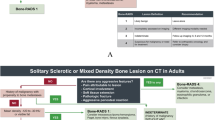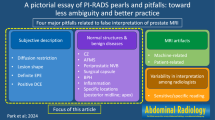Abstract
We compared the ability to diagnose skeletal metastasis between serum prostate specific antigen (PSA), C-terminal propeptide of blood type I procollagen (PICP), and urine type I collagen-crosslinked N telopeptide (NTx) in prostate cancer patients. In sixty-nine patients with prostate cancer, bone scintigraphy was performed, and serum PSA and PICP and urine NTx were measured. The median level of serum PSA in the osseous metastasis-negative group (n=33) was 0.80 ng/ml being significantly lower as compared to the osseous metastasis-positive group (n=36, 7.70 ng/ml) (p<0.0001). The serum PICP and urine NTx/Cr levels appeared lower in the osseous metastasis-negative group than the osseous metastasis-positive group, but there was no significant difference. Logistic regression analysis showed that ability to diagnose skeletal metastasis of serum PSA was 68.1% and superior to those of serum PICP (56.5%) and urine NTx/Cr (53.6%). Serum PSA improved the ability to diagnose skeletal metastasis when combined with serum PICP or urine NTx/Cr. When patients were grouped according to the extent of disease grade (EOD grade) nomenclature, Spearman's correlation coefficient by rank showed that serum PSA was most significantly correlated with EOD grade (p<0.0001). In 14 patients whose skeletal metastases progressed or regressed, the change of serum PSA more clearly separated the osseous metastasis-regression group and osseous metastasis-progression group than did serum PICP and urine NTx/Cr. Serum PSA was more reliable than bone resorption and formation markers produced by crosslinking of type I collagen.
Similar content being viewed by others
References
Koizumi K, Uchiyama G, Komatsu H. Scintigraphic changes in bone metastasis from prostate cancer after hormonal therapy-comparison with tumor markers and bone X-ray.Ann Nucl Med 1994; 8: 225–230.
Slack NH, Lane WW, Priore RL, Murphy GP. Prostate cancer.Urology 1986; 27: 205–213.
Hanson DA, Weis MAE, Bollen AM, Maslan SL, Singer FR, Eyre DR. A specific immunoassay for monitoring human bone resorption: Quantitation of type I collagen cross-linked N-teropeptides in urine.J Bone Miner Res 1992; 7: 1251–1258.
Eyre DR. New biomarker of bone resorption.J Clin Endocrinol Metab 1992; 74: 470A-470C.
Melkko J, Niemi S, Risteli L, Risteli J. Radioimmunoassay of the carboxyterminal propeptide of human type I procollagen.Clin Chem 1990; 36: 1328–1332.
Francini G, Gonnelli S, Petrioli R, Bruni S, Marsili S, Aquino A, et al. Procollagen type I carboxy-terminal propeptide as a marker of osteoblastic bone metastases.Cancer Epidemil, Biomarkers and Prev 1993; 2: 125–129.
Rudnicki M, Jensen TL, Iversen P. Collagen derived serum markers in carcinoma of the prostate.Scand J Urol Nephrol 1995; 29: 317–321.
Hosoya Y, Arai K, Honda M, Sumi S, Yoshida K. Serum levels of the carboxy-terminal propeptide of type I procollagen and the pyridinoline cross-linked carboxyterminal telopeptide of type I collagen as markers of bone metastases in patients with prostate cancer.Eur Urol 1997; 31: 220–223.
Miyamoto KK, McSherry SA, Robins SP, Besterman JM, Mohler JL. Collagen cross-linked metabolites in urine as markers of bone metastases in prostatic carcinoma.J Urol 1994; 151: 909–913.
Catalona WJ, Smith DS, Ratliff TL, Dodds KM, Coplen DE, Yuan JJJ, et al. Measurement of prostate-specific antigen in serum as a screening test for prostate cancer.N Eng J Med 1991; 324: 1156–1161.
Oesterling JE. Prostate specific antigen: A critical assessment of the most useful marker for adenocarcinoma of the prostate.J Urol 1991; 145: 907–923.
Wolff JM, Zimny M, Borchers H, Wildberger J, Buell U, Jakse G. Is prostate-specific antigen a reliable marker of bone metastasis in patients with newly diagnosed cancer of the prostate?Eur Urol 1998; 33: 376–381.
Wolff JM, Bares R, Jung PK, Buell U, Jakse G. Prostate-specific antigen as a marker of bone metastasis in patients with prostate cancer.Urologia Internationalis 1996; 56: 169–173.
Lorente JA, Morote J, Raventos C, Encabo G, Valenzuela H. Clinical efficacy of bone alkaline phosphatase and prostate specific antigen in the diagnosis of bone metastasis in prostate cancer.J Urol 1996; 155: 1348–1351.
Stokkel M, Zwinderman A, Zwartendijk J, Pauwels E, Eck-Smit B. The value of pretreatment clinical and biochemical parameters in patients with newly diagnosed untreated prostate carcinoma and no indications for bone metastases on the bone scintigram.Eur J Nucl Med 1997; 24: 1215–1220.
Freitas JE, Gilvydas R, Ferry JD, Gonzalez JA. The clinical utility of prostate-specific antigen and bone scintigraphy in prostate cancer follow-up.J Nucl Med 1991; 32: 1387–1390.
Gleave ME, Coupland D, Drachenberg D, Cohen L, Kwong S, Goldenberg SL, et al. Ability of serum prostate-specific antigen levels to predict normal bone scans in patients with newly diagnosed prostate cancer.Urology 1996; 47: 708–712.
Rudoni M, Antonini G, Farvo M, Baroli A, Brambilla M, Cardani G, et al. The clinical value of prostate-specific antigen and bone scintigraphy in the staging of patients with newly diagnosed, pathologically proven prostate cancer.Eur J Nucl Med 1995; 22: 207–211.
Union Internationale Contre le Cancer:TNM classification of Malignant Tumors, 4th edn. International Union Against Cancer, Geneva, 1987.
Soloway MS, Hardeman SW, Hickey D, Raymond J, Todd B, Soloway S, et al. Statification of patients with metastatic prostate cancer based on extent of disease on initial bone scan.Cancer 1988; 61: 195–202.
Jacobs SC. Spread of prostatic cancer.Urology 1983; 21: 337–344.
Corrie D, Timmons JH, Bauman JM, Thompson IM. Efficacy of follow-up bone scans in carcinoma of the prostate.Cancer 1988; 61: 2453–2454.
Imai K, Tomaru Y, Ohnuki T, Yamanaka H, Sakai H, Kanetaka H, et al. Significance of a new stratification of alkaline phosphatase and extent of disease in patients with prostate carcinoma with bone metastasis.Cancer 1992; 69: 2983–2989.
Nguyen-Pamart M, Caty A, Feutrie ML, Fournier C, Gosselin P, Mazeman E. The diagnostic value of urinary crosslaps and serum alkaline phosphatase in patients with prostate cancer.Br J Urol 1992; 170: 299–303.
Takeuchi S, Arai K, Saitoh H, Yoshida K, Miura M. Urinary pyridinoline and deoxypyridinoline as potential markers of bone metastasis in patients with prostate cancer.J Urol 1996; 156: 1691–1695.
Hosoya Y, Arai K, Honda M, Sumi S, Yoshida K. Serum levels of the carboxy-terminal propeptide of type I procollagen and the pyridinoline cross-linked carboxy-terminal telopeptide of type I collagen as markers of bone metastases in patients with prostate cancer.Eur Urol 1997; 31: 220–223.
Kylmala T, Tammela TLJ, Risteli L, Risteli J, Risteli J, Kontturi M Elomaa I. Type I collagen degradation product (ICTP) gives information about the nature of bone metastases and has prognostic value in prostate cancer.Br J Cancer 1995; 71: 1061–1064.
Fukumitsu N, Uchiyama M, Mori Y, Yanada S, Hatano T, Igarashi H, et al. Correlation of urine type I collagen-crosslinked N telopeptide levels with bone scintigraphic results in prostate cancer patients.Metabolism 2002; 51: 814–818.
Garnero P. Markers of bone turnover in prostate cancer.Cancer Treat Rev 2001; 27: 187–192.
di Sant' Agnese PA, Cockett TK. The prostatic endocrine-paracrine (neuroendocrine) regulatory system and neuroendocrine differentiation in prostatic carcinoma: A review and future directions in basic research.J Urol 1994; 152: 1927–1931.
Deftos LJ, Nakada S, Burton DW, di Sant'Agnese PA, Cockett TK, Abrahamsson P-A. Immunoassay and immunohistology studies of chromogranin A as a neuroendocrine marker in patients with carcinoma of the prostate.Urology 1996; 48: 58–62.
Akimoto S, Furuya Y, Akakura K, Ito H. Comparison of markers of bone formation and resorption in prostate cancer patients to predict bone metastasis.Endocr J 1998; 45: 97–104.
Galasko CS. Mechanisms of bone destruction in the development of skeletal metastases.Nature 1976; 263: 507–508.
Author information
Authors and Affiliations
Corresponding author
Rights and permissions
About this article
Cite this article
Fukumitsu, N., Uchiyama, M., Mori, Y. et al. A comparative study of prostate specific antigen (PSA), C-terminal propeptide of blood type I procollagen (PICP) and urine type I collagen-crosslinked N telopeptide (NTx) levels using bone scintigraphy in prostate cancer patients. Ann Nucl Med 17, 297–303 (2003). https://doi.org/10.1007/BF02988524
Received:
Accepted:
Issue Date:
DOI: https://doi.org/10.1007/BF02988524




